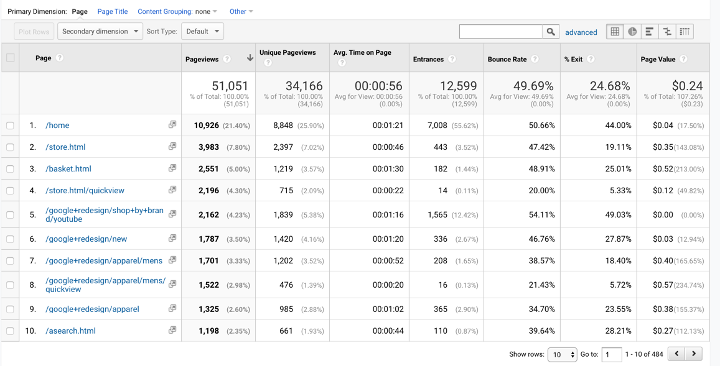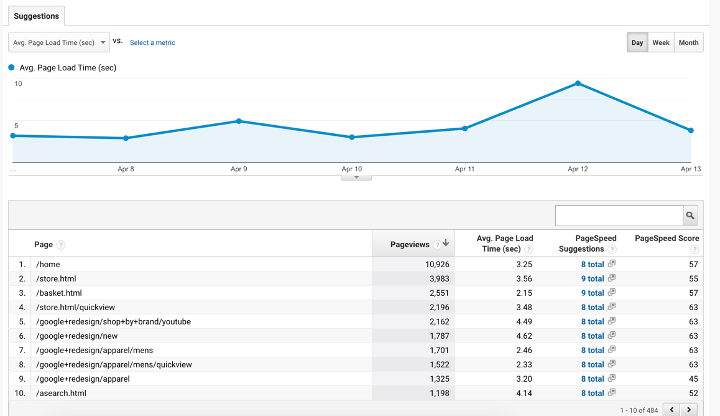Google Analytics: Not just for Digital Marketers
My position at Weidenhammer is one of variety. I work as a Design and Development Associate, which is a fancy way of saying a have my hands in a little bit of everything. I have a background and degree in design and have a fair amount of knowledge and skill when it comes to development, so I can usually assist with a variety of tasks without much of an issue. Recently, I had the chance to expand my knowledge further with cross training in Google Analytics, and receive ultimately receive a Google Analytics Certification. While I had some knowledge in Analytics as it relates to website development, this tool is used heavily by our digital marketing team so I was excited to get started.
Initially, what caught my attention when working through the recommended courses was how much this information could help me improve other areas of expertise. As a designer/developer hybrid, and now digital marketer in training, this experience really opened my eyes to how interwoven these skills are, and how I can use my knowledge in one to boost my competence in another.
Analytics and Designing For the Web
Web design, much like technology itself, is rapidly evolving – being a designer is a constant game of cat and mouse. Some argue that the most important part of designing is the user experience, or how a user will digest and interact with your digital presence. As a designer, it is your job to understand how the average person will see your website and expect to travel through it. You would then take that knowledge and reflect in a beautiful design.

As I was learning about the data housed inside of Google analytics, metrics such as bounce rate, time on page and exit pages kept me thinking… “this would be so useful in design.”
You better understand what pages and layouts are working, and which ones just don’t. This would be especially helpful in site redesigns, where the client has some analytics from their outdated site. If more designers included running through Google Analytics in their pre-design research and brainstorming, it could potentially reduce the time it takes for page redesigns when things may not be performing as well.
Analytics also has a “Site Search” dimension, where you can see what people are searching for on your website. This information could be invaluable, as it could tell a designer what pages or topics users are having trouble finding. The data could influence how a navigation is set up, or what is made more prominent or given a prominent spot on the homepage. Some changes and band-aids after launch could be avoided entirely with this data.
Analytics and Development
In web development, there are several variables that must be considered as you’re building/modifying a site. If everyone viewed websites exclusively on one browser, at one specific size, the conversation around universal development would be non-existent; however, there are a multitude of different devices and programs to browse the web.
This creates a unique problem for most developers – make their builds look great at every size, on every device, on every browser.
This is where Analytics can become an invaluable tool. Information such as browser, device, and site speed in readily available to be analyzed. If there is a significant uptick in bounce rate for a specific browser/device across the board, the site may need to be optimized for those specific parameters. Most users will not give a broken-looking site the time of day, even if the core functionality is intact, meaning this could have a serious impact on the performance of any site.

Another key insight from a development perspective is Site Speed. This is an important focus of SEO nowadays, especially on mobile. With knowledge of analytics and the helpful suggestions it provides, you can see which assets, pages, and elements are slowing a site down, and optimize them accordingly.
What’s the Point?
Our team at Weidenhammer has a wide range of skills, and each of us work together to reach a common goal: to reach client’s goals while providing excellent service. The knowledge I’ve acquired through this training is nothing new to our team, and I could have been instructed by an actual digital marketer to do specific tasks based on their judgement from the information in Analytics. However, this training has not only allowed me to see where these conclusions come from, but also draw some of my own. This means the amount of back and forth between me and the digital marketing team will be greatly reduced, saving everyone time.
In these current circumstances where I am (now) miles away from my coworkers instead of a few feet, this is truly invaluable. A broader knowledge of my field allows me to react faster, understand concepts in other fields better, and apply that knowledge to my own field.
Learn more about our Digital Solutions by reaching out today.

